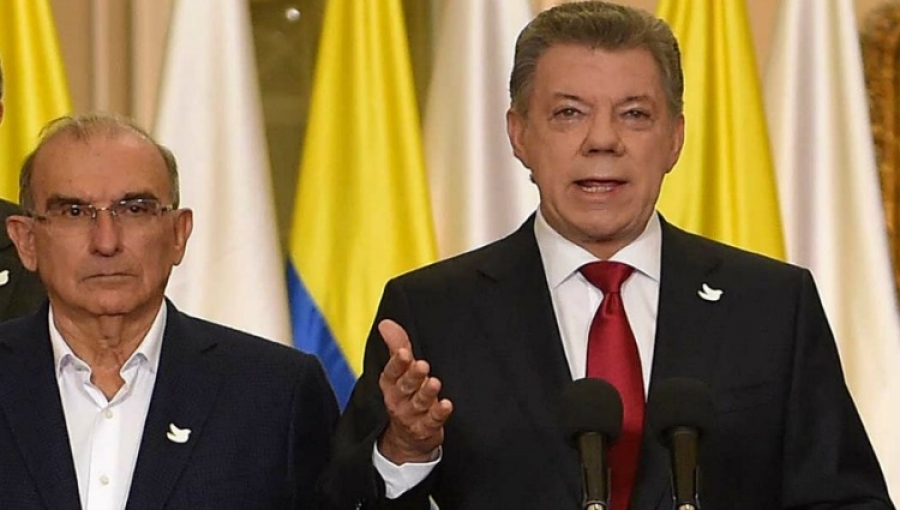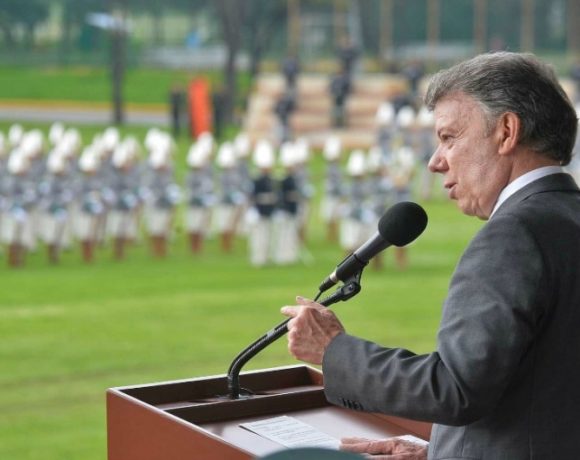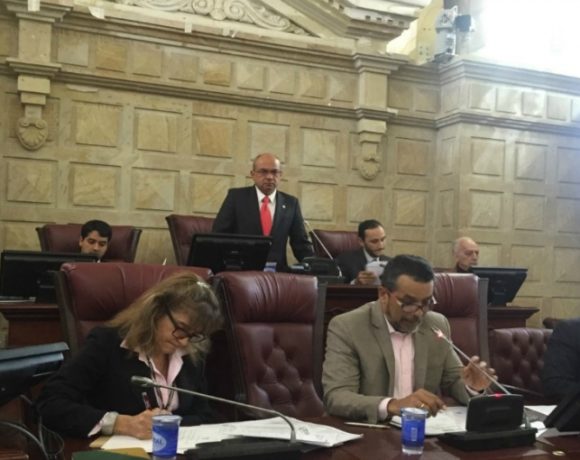Medellin, Antioquia Led Colombia to Reject FARC ‘Peace’ Pact

Medellin and Antioquia overwhelmingly voted “no” in the October 2 national plebiscite on whether to ratify a “peace” agreement between Colombian President Juan Manuel Santos and the narco-terrorist Fuerzas Armadas Revolucionarias de Colombia (FARC).
While the “no” vote prevailed nationally by 50.23% versus 49.78% for “yes,” 62% of voters in Antioquia rejected the Santos-FARC “peace” deal, while Medellin proper also voted overwhelmingly “no” – 431,173 against the deal, with just 253,548 in favor.
Departments including Antioquia, Norte de Santander, Santander, Huila, Tolima, Meta, Casanare and Caqueta – all voting overwhelmingly “no” in the plebiscite — have been especially hard-hit by decades of murders, kidnappings, extorsions, narcotrafficking, criminal mining, infrastructure destruction and forced child recruitment carried out by the FARC.
These voters saw the Santos “peace” deal terms as excessively generous to the FARC, since the deal wouldn’t have required any of the FARC leaders to spend any time in jail – and even would have allowed these bloody terrorists to get guaranteed seats in the Colombian House and Senate.
However, the “no” win surprised most national analysts and pollsters, who had predicted that the plebiscite would have garnered about 60% “yes” in the national vote. But following the vote, analysts stated that they now believe that many people had falsely told them that they intended to vote “yes” when in fact they had no intention of approving the Santos deal.
Following the vote, President Santos called for new talks with leaders of the opposition – principally led by the Centro Democratico party headed by former President Alvaro Uribe. Several leading dissidents in other parties including the Liberals and the Conservatives also had campaigned against the Santos-FARC deal, seeing it as excessively generous to the FARC.
Near-universal pardons and impunity for heinous crimes included in the “peace” deal featured an “alternative” justice scheme that would have allowed mass-murderers, kidnappers and narco-traffickers to perform some vaguely-defined social work rather than spend any time in prison. Even more shocking was a provision allowing these criminals to run for Congress, mayorships, governorships and even the Presidency of Colombia.
Further provisions in the “peace” pact would have effectively created parallel states in parts of rural Colombia where coca fields and FARC guerrillas have dominated for decades.
For example: The pact would have created a mind-boggling series of rural committees and councils that effectively could block any police control by the national government – and even turn-over to FARC sympathizers veto powers over who could be hired by private security firms.
The pact also could have resulted in scores of police and military – including those falsely accused by FARC sympathizers — being sent to prison by court judges that would in part be selected by the FARC, while allowing FARC kidnappers and murderers to escape any prison time – a provision denounced by leaders of the national Victims of FARC organization.
While the Centro Democratico party declined an invitation by President Santos to attend an all-parties meeting following the vote, leaders of Centro Democratico said that they welcome the opportunity to meet with delegates of the Santos government to discuss ways to fix the badly flawed Santos-FARC “peace” agreement.
Former President Uribe said that any future, revised peace deal at minimum must include serious punishments for FARC leaders’ heinous crimes, a ban on FARC criminals’ eligibility for elected office, guarantees against persecution of police and military that have acted in legal defense of Colombia’s democracy, a turning-over of FARC’s vast earnings obtained from criminal activity to a national reparations fund, and a ban on any scheme that would amend the national constitution in any future “peace” deal.
















